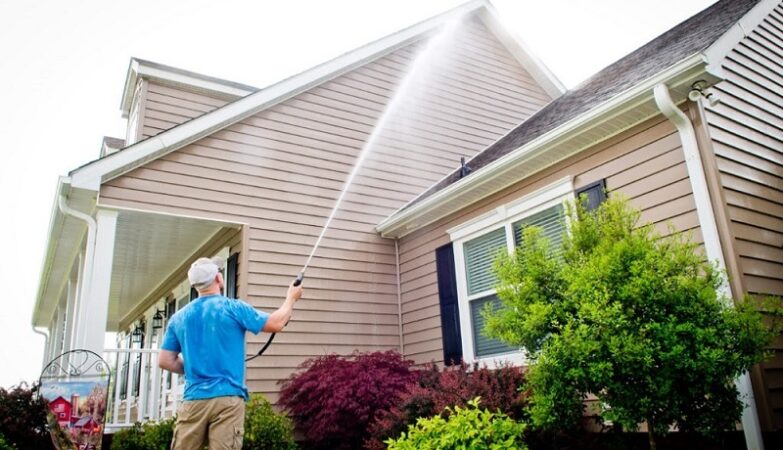For motorcycle enthusiasts, the satisfaction of working on their machines runs deep. However, the decision of whether to tackle a repair yourself or take it to the dealership can be a conundrum. This article explores the factors to consider when deciding between DIY motorcycle repairs and professional service.
The Case for DIY Repairs
There are several advantages to tackling motorcycle repairs yourself, provided you possess the necessary skills and knowledge:
-
Cost Savings: Motorcycle dealerships can be expensive, with labor costs often adding up quickly. By doing the work yourself, you can potentially save significant money on repairs.
-
Sense of Accomplishment: Completing a repair yourself brings a unique sense of accomplishment and fosters a deeper understanding of your motorcycle’s inner workings.
-
Customization and Control: DIY repairs allow you to personalize your motorcycle with aftermarket parts or performance upgrades, tailoring it to your specific needs and preferences.
-
Learning and Development: Working on your motorcycle is a valuable learning experience. It hones your mechanical skills, helps you troubleshoot future problems, and empowers you to become more self-reliant.
The Importance of Safety and Knowledge
Before embarking on any DIY repairs, it’s crucial to prioritize safety and acknowledge the limitations of your knowledge and skill set. Here’s what to consider:
-
Safety First: Motorcycle repairs can involve hazardous materials and tools. Always prioritize safety by wearing proper personal protective equipment (PPE) like gloves, safety glasses, and sturdy footwear. If a repair requires specialized tools or lifting heavy components, it might be best to leave it to the professionals.
-
Assess the Complexity: Be honest about your mechanical abilities. Simple tasks like oil changes, chain adjustments, and tire changes can be tackled by most riders with a basic understanding and a workshop manual. However, complex repairs like engine rebuilds, electrical system troubleshooting, or major suspension work are best left to trained mechanics.
-
Consult the Manual: Your motorcycle’s workshop manual is an invaluable resource. Refer to it for specific repair procedures, torque specifications, and safety instructions.
When to Take it to the Dealership
While DIY repairs can be rewarding, some situations demand professional intervention:
-
Warranty Considerations: Working on your motorcycle yourself might void the warranty if the repairs are not done according to manufacturer specifications.
-
Lack of Confidence or Skills: If you’re unsure of your abilities, don’t hesitate to take your motorcycle to a reputable dealership. A qualified mechanic can diagnose the problem accurately and ensure the repairs are done correctly.
-
Specialized Tools or Equipment: Certain repairs require specialized tools or diagnostic equipment not readily available to most home mechanics. Dealerships have access to these tools and the expertise to use them effectively.
-
Time Constraints: If you’re short on time, taking your motorcycle to the dealership might be a better option, especially for complex repairs.

Finding a Reputable Dealership
If you choose to utilize a dealership, here are some tips for finding a reliable one:
-
Get Recommendations: Ask fellow riders for recommendations on reputable motorcycle dealerships in your area. Read online reviews and testimonials to get a sense of other customers’ experiences.
-
Check Certifications: Look for dealerships with mechanics who are certified by the manufacturer of your motorcycle. This ensures they have the specific knowledge and training required to work on your bike.
-
Get a Quote Upfront: Before authorizing any repairs, ask for a written estimate of the cost and the expected time frame for completion.
-
Communication is Key: Communicate the problem you’re experiencing with your motorcycle to the service advisor. Ask questions and ensure you understand the repairs recommended by the mechanic.
Related: What Opens the Fuel Pressure Regulator?
The Final Decision: A Blend of Knowledge and Common Sense
The decision to DIY or take your motorcycle to a dealership ultimately boils down to a blend of your mechanical knowledge, the complexity of the repair, and your comfort level. For routine maintenance and simple repairs, DIY can be a rewarding and cost-effective option. However, for complex repairs, safety-critical components, or situations where you lack the necessary skills, entrusting your machine to a qualified mechanic is the wiser choice.
Remember, a well-maintained motorcycle not only ensures your safety on the road but also extends its lifespan and performance. Whether you choose DIY or seek professional help, prioritize safety, knowledge, and responsible motorcycle ownership.
Additional Considerations
-
The availability of aftermarket parts and repair resources can influence your decision. Some repairs might be easier and cheaper to tackle yourself if readily available parts and online tutorials exist.
-
Joining a motorcycle forum or club can be a valuable resource. Connect with fellow riders, share repair tips and experiences, and gain valuable insights from experienced mechanics within the community.
By understanding your capabilities, the repair at hand, and the resources available, you can make an informed decision about whether to tackle a motorcycle repair yourself or take it to the dealership. Remember, even the most skilled DIY mechanic can benefit from professional service occasionally. Regular dealership checkups can ensure your motorcycle is in top condition and identify potential issues before they become major problems.
The Importance of Preventative Maintenance
Regardless of whether you’re a DIY enthusiast or a dealership devotee, regular preventative maintenance is crucial for your motorcycle’s longevity and safety. Performing basic maintenance tasks like oil changes, chain lubrication, tire pressure checks, and brake inspections can often be done at home with the right tools and knowledge.
The Joys of Motorcycle Ownership
Ultimately, owning a motorcycle is about enjoying the freedom and exhilaration of the open road. Whether you find satisfaction in tinkering with your machine or prefer to rely on the expertise of a trusted mechanic, prioritize safety, responsible ownership, and the joy of riding. So, get out there, explore new roads, and make memories that will last a lifetime – with a motorcycle that’s running smoothly, no matter who keeps it that way.








